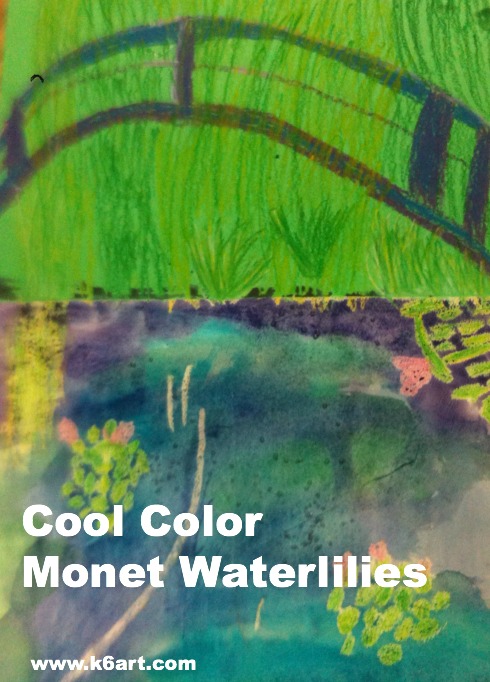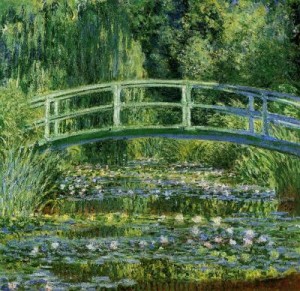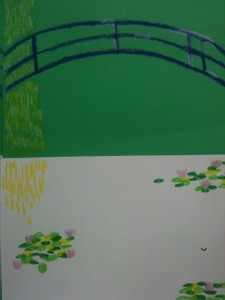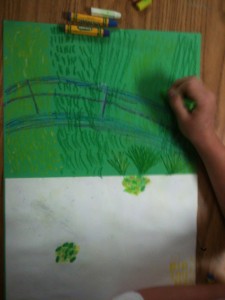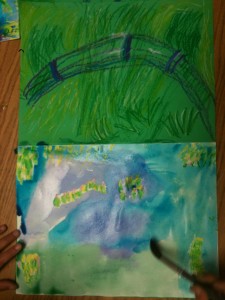Second grade is studying the cool colors. After watching the excellent elementary color theory DVD Getting to Know Color in Art we looked at photos of Monet’s beautiful garden and pond in Giverny, France. Students could imagine themselves at the pond on a summer day, feeling the willows sway, listening to frogs as they rested on the lily pads, resting in the cool shade, even floating in Monsieur Monet’s ‘art boat’ as it passed under the Japanese bridge.
We looked at several of Monet’s waterlily paintings, focusing on his use of cool colors and short, quick strokes of paint. You can download my Powerpoint of Monet’s garden here.
We then created an oil pastel and watercolor art work.
Allow three 40-minute sessions for this project.
Materials:
- 12×18 construction green construction paper
- 9×12 watercolor paper
- glue sticks
- oil pastels in blues, greens, and purples plus white, yellow and pink
- watercolors in blue, green and purple
- kosher salt (optional)
Discuss Monet’s art, his pond and garden. Review cool colors. View powerpoint or photos of Monet’s garden.
Fold green construction paper ‘hamburger’ (the short way). Glue watercolor paper to lower half of green paper.
Review painting of pond and Japanese bridge.
Oil Pastel:
Using oil purple and blue oil pastels, draw three arcs (‘rainbows’) for the Japanese bridge. Add some vertical lines to the bridge to finish. Blend and highlight with white oil pastels.
Review photos of water lilies.
Using various green and yellow oil pastels, draw clusters of lily pads on the watercolor paper. The lily pads don’t have to be perfect – just ovals or quick strokes of pastel. They should overlap a bit. Add a few pink lily flowers, highlight with white.
Fill the entire top half of the green paper with foliage in greens and yellow. Use short strokes. Add a downward cascade of short lines for the weeping willow. Tell kids to ‘go behind’ the Japanese bridge.
Painting:
Using the cool colors (blue, green and purple), paint the watercolor paper using long horizontal strokes. Colors can overlap and blend. Go right over the oil pastel lily pads.
Students may add a small pinch of Kosher salt to the wet watercolor. The salt absorbs a bit of color and an additional dimension to the pond. Brush off salt when dry.
Wow!!! This project was a hit! We learned about a famous artist, reinforced color theory, experienced the joy of painting on watercolor paper and blending pastels. All kids were very proud of their artwork. Success!
Enjoy!
(Note: post updated 12/22/13)

